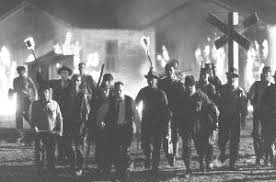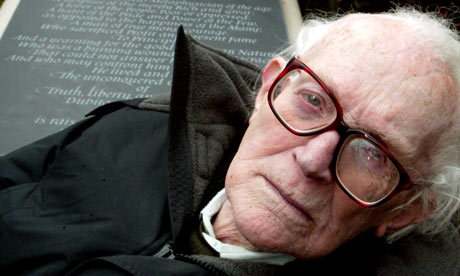This plan to allow the most popular online petitions to be debated in parliament - a Tory election manifesto pledge - has been given the go ahead by the coalition. Naturally this has unsettled some who see it as a potential road to mob rule, however the government and the reasoning behind the plan claim it is a way to reconnect with voters who feel increasingly shut out and alienated since the expenses crisis broke last year. A chance to kick start democracy and parliamentary enthusiasm to a jaded and indifferent electorate. Critics say it will end up meaning that parliament will be honour bound have to debate supporting / opposing wacky petitions such as making Jeremy Clarkson prime minister (50'000 signed that e-petition, the minimum limit proposed is double that.), or making the Jedi a recognised religion, and so forth. Or that these petitions are often rather based on the ephemeral fickle desires of the electorate. These are legitimate concerns, so we must ask; will this idea be a good or bad one?
My own personal answer to this question is yes. It will be both a good and bad thing. Mass participant democracy is so multifaceted and fickle and nebulous it can't be much else. The positives are that the plan is certainly democratic to a degree. It also has the benefit of being able to bring transparancy to the arguments of the proponents and opponents of controversial popular issues such as membership of the E.U, capital punishment and immigration (I guarantee at least one of these will be at the head of the list of stuff to be debated.) in parliament being forced to up their game and fight their corner in the public debate on these issues, raising public awareness of the pros and cons of each. Sometimes lots of people may have strong views on this kind of stuff, but little working knowledge of how these would be put in practice. Hopefully this kind of debate could give laypeople insight into how the mechanics governing a country actually works. It could also reassure an electorate that issues that may be popular talking points in the public sphere, but are seen to be "ducked" in the Commons are now being debated (though we must emphasise that they are "only" being debated and are not full blown referenda.)
Now for the downsides of the idea. Surprisingly the issue of stuff like the "Clarkson for PM" petition having to be debated is pretty minor. For one thing the criteria around the new petitions is more robust, and it would take about 5 seconds to reject it if it was put through for debate (Clarkson says he doesn't want to be PM for a start. Debate over.) There is the risk that parochialism, short term gain at the expense of long term goals and appeals to popular prejudices and xenophobia may become more prevalent. (though that may be seen as acting in the course of popular democracy) That there will be more soundbites and appealing to raw populism. Almost certainly we may see "astroturf" campaigning where petitions ostensibly started by "the grassroot public" will have bigger interest groups behind them, who can use these things to their own effects (and can call it the "will of the people"). Ditto for those right wing libertarian groups who mask their dislike of a certain form of regulation as "climate change scepticism". They will likely slow decision making and the parliamentary process, as the various debates of the pros and cons eats in to Westminster's time. I can see various back bench MP's stirring up these petitions of their own making to pursue their own eccentric obsessions (Don't be too surprised if Philip Davies tries getting a "Ban Political Correctness"* petition started. I could see Nadine Dorres doing this kind of thing as well.) And lastly they could actually make people more dejected at the state of our democracy. People may end up being a bit pissed off when their large petition that they signed; say on leaving the EU, doesn't get them the referendum (and cross channel divorce into the bargain one would presume) they were so keen on, as the Eurosceptic John Redwood explains in this blog post here . As we see the practical issues are not as clear cut we may think. Time will tell I suppose.
*Banning Political Correctness may be both fairly popular and could seem to be an easy thing to achieve. But then we remember that PC is just a vague adjective for a bunch of stuff / people / regulations some other vague group of people don't approve of. Even debating what passes as "PC" and "Non PC" could be wrangled over for ages. I'd hate to think how this would then be translated into workable laws, which could be wrangled over for even more ageser. Ditto for the inevitable calls for bans on "Elf - N -Safety", "Non Jobs" and "Worthless Degrees" How do you translate abstract terms to solid laws? Answer not very easily.







